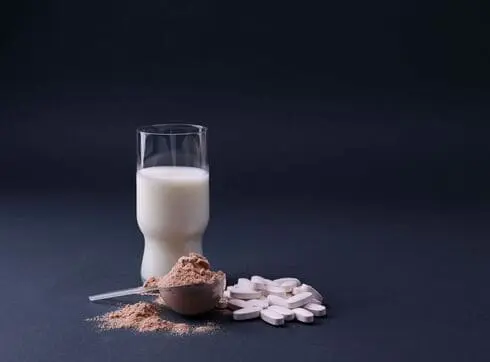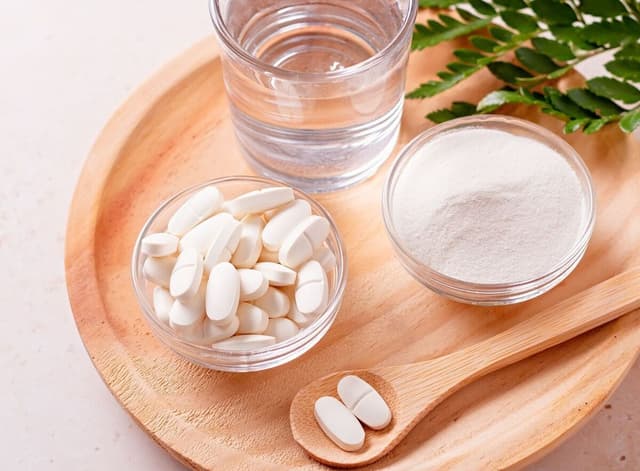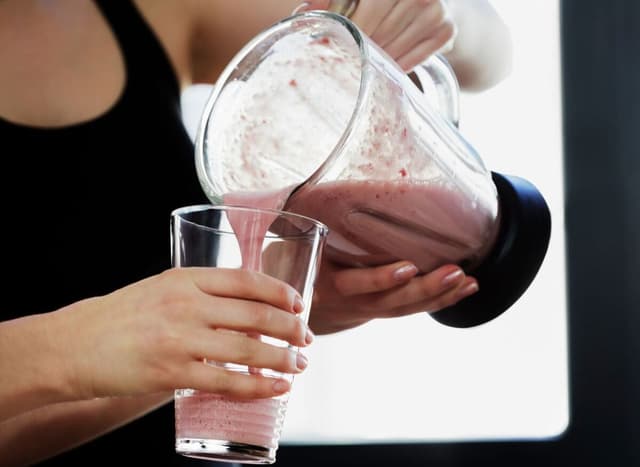Creatine and Hydration: New Findings Show the Importance of Staying Hydrated While Supplementing

October 3, 2024
Creatine has long been recognized as one of the most effective supplements for athletes and fitness enthusiasts. It enhances muscle strength, improves performance in high-intensity exercise, and aids in recovery. However, recent findings have highlighted the crucial relationship between creatine supplementation and hydration. Maintaining proper hydration levels while supplementing with creatine is essential for optimizing its benefits and ensuring overall health. In this blog post, we'll delve into the significance of hydration when using creatine, how creatine supports hydration, and scientific studies that underscore these findings.
How Creatine Supports Hydration
When you supplement with creatine, your body retains more water in the muscles. This increased water retention can lead to improved muscle volume, enhanced exercise performance, and greater strength. However, this process can also increase the demand for overall hydration in the body. Here are a few ways creatine supplementation relates to hydration:
1. Increased Water Retention in Muscles
Creatine draws water into muscle cells, leading to increased cell volume. This phenomenon, often referred to as "cell volumization," can help promote protein synthesis, leading to muscle growth. However, it also means that your body requires more water to maintain optimal hydration levels.
2. Impact on Electrolyte Balance
With increased water retention, there can be shifts in electrolyte balance, which are crucial for muscle function and overall hydration. Maintaining an adequate intake of electrolytes—such as sodium, potassium, and magnesium—along with creatine supplementation can help support hydration status.
3. Enhanced Recovery and Performance
Hydration is critical for recovery after intense workouts. Proper fluid levels help transport nutrients, regulate body temperature, and prevent fatigue. By supporting hydration, creatine can indirectly enhance recovery, allowing athletes to train harder and perform better over time.
Scientific Studies Supporting Creatine and Hydration
Several studies have explored the relationship between creatine supplementation and hydration, providing valuable insights into why staying hydrated is essential for those using this popular supplement.
1. Hydration Status and Performance
A study published in the Journal of Strength and Conditioning Research found that dehydration negatively impacts exercise performance and recovery. The research indicated that maintaining proper hydration levels is essential, especially for athletes supplementing with creatine. The authors concluded that hydration could significantly influence the performance benefits associated with creatine.
2. Creatine Supplementation and Electrolyte Levels
Our Top Recommendations

Optimum Nutrition Micronized Creatine Monohydrate Powder
Micronized for easy mixing, supports muscle growth and endurance.
See on Amazon$0.35 per 5g serving

Nutricost Creatine Monohydrate Micronized Powder
Third-party tested, non-GMO, 5g of pure creatine per serving.
See on Amazon$0.2 per 5g serving

NSF Certified, supports muscle power and recovery.
See on Amazon$0.46 per 5g serving

ProMix Creatine Monohydrate Powder
Micronized, additive-free, ideal for performance and recovery.
See on Amazon$0.36 per 5g serving

NOW Foods Sports Nutrition Unflavored
100% pure creatine, GMP certified, boosts strength and endurance.
See on Amazon$0.2 per 5g serving
Research published in the International Journal of Sport Nutrition and Exercise Metabolism examined how creatine supplementation affects electrolyte balance. The study indicated that creatine users often experience alterations in sodium and potassium levels. The researchers emphasized the importance of monitoring hydration and electrolyte intake when using creatine to optimize performance and avoid potential side effects.
3. Long-Term Creatine Use and Hydration
A longitudinal study investigated the long-term effects of creatine supplementation on hydration status in athletes. The findings revealed that individuals who did not maintain adequate hydration while supplementing with creatine experienced increased incidences of muscle cramps and gastrointestinal issues. This study highlighted the necessity of proper hydration for those considering long-term creatine use.
Recommended Creatine Dosage and Hydration Strategies
To ensure you maximize the benefits of creatine while maintaining hydration, consider the following recommendations:
1. Dosage Guidelines
The most common dosing strategies for creatine involve:
- Loading Phase: For the first five to seven days, consume 20 grams of creatine daily, divided into four doses. This loading phase helps saturate the muscles with creatine more quickly.
- Maintenance Phase: After the loading phase, transition to a daily maintenance dose of 3 to 5 grams to maintain elevated muscle creatine levels.
2. Hydration Tips
- Drink Plenty of Water: Aim for at least 2 to 3 liters of water daily, especially when supplementing with creatine. Pay attention to your body's signals and adjust your fluid intake according to your activity level.
- Include Electrolytes: When exercising, especially in hot and humid conditions, consider incorporating electrolyte-rich beverages or supplements to help maintain proper hydration and electrolyte balance.
- Monitor Urine Color: A simple way to gauge hydration status is to monitor your urine color. Pale yellow urine typically indicates good hydration, while dark yellow urine may signal dehydration.
Conclusion
The relationship between creatine supplementation and hydration is an essential consideration for athletes and fitness enthusiasts. Understanding how creatine influences hydration and ensuring you maintain adequate fluid intake can help you maximize the benefits of this powerful supplement. By following recommended dosing guidelines and hydration strategies, you can support your performance, recovery, and overall health.
If you’re looking to enhance your fitness journey with creatine, remember to prioritize hydration. For more insights on optimizing your supplement routine and improving your athletic performance, subscribe to our blog and explore our related content!






